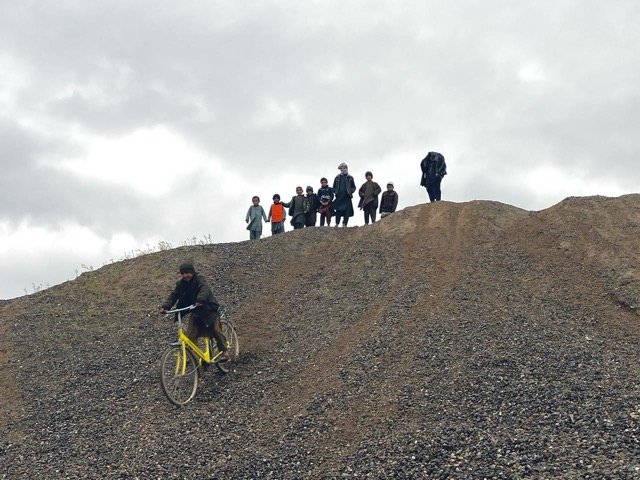Afghan Dialogue in Islamabad Sparks Rift Over Legitimacy

Photo: @AADIL for ADN
By Kazim Jafari
A rare political dialogue among Afghan exiles in Islamabad has stirred heated debate, exposing both the opportunities and risks of political engagement abroad. Organized by the South Asian Strategic Stability Institute University (SASSI) in collaboration with Women for Afghanistan (WFA), the event underscores how questions of advocacy, legitimacy, and safety follow Afghans far beyond their country’s borders.
The two-day event, initially delayed due to logistical issues, aims to bring together Afghan political groups, civil society representatives, journalists, and Pakistani policymakers to discuss stability, rule of law, and inclusive governance.
SASSI, chaired by Maria Sultan, a former civilian defense strategist for Pakistan’s Ministry of Defence, and WFA, a women-focused advocacy organization, say the dialogue is designed to encourage constructive debate and consensus-building among the Afghan diaspora. For many participants, it represents one of the few platforms where they can speak openly without fear of retribution.
Umar Daudzai, a former Afghan interior minister now living in diaspora, emphasized the stakes.
“There are no opportunities inside Afghanistan,” he stated.
He said Taliban claims of security inside Afghanistan are misleading, and that political actors risk extrajudicial threats if they return.
Daudzai also pointed to internal divisions within the Taliban, particularly in relation to Pakistan. He described three factions: anti-Pakistan elements, pro-Pakistan supporters, and opportunistic groups who shift their stance depending on self-interest.
Combined with Pakistan’s concerns about border security and the activities of groups like the Tehreek-e-Taliban Pakistan (TTP), he argued, these divisions give exile dialogues both political and strategic weight.
“These meetings are lifelines for Afghan voices in exile.”
Diaspora Debate and Gender Advocacy
The dialogue has drawn strong reactions, notably from Zalmay Khalilzad, the Afghan-American diplomat and former U.S. ambassador to Afghanistan.
He questioned the independence of the event and raised concerns about Pakistan’s intelligence involvement. Khalilzad tweeted:
“The Pakistani Intelligence Agency ISI is the actual organizer of the conference and is orchestrating the visit. Afghans have the right to oppose the Taliban, but given the history of Afghan-Pakistan relations, this risks pitting one group of Afghans against another.”
He also addressed the Afghan invitees directly:
“I respect your right to advocate for what you believe, but the ISI’s intention is not a free and strong Afghanistan. The conference lacks transparency and is not the right place for patriotic Afghans. Organize independently if you want to avoid the ISI’s influence.”
Khalilzad further criticized the lack of transparency and warned that participation without scrutiny could inadvertently validate Pakistan’s influence.
In response, Sultan defended the initiative as a neutral platform for dialogue. She urged critics not to undermine the participants and even invited Khalilzad to attend as a guest.
“Perhaps it’s time to see for yourself that people just want to talk,” she said.
Women’s rights activists have also emphasized the event’s significance for gender inclusion. Fawzia Koofi, one of the invited participants, noted that in Afghanistan, even small gatherings are heavily restricted.
She described the dialogue as one of the few safe spaces Afghan women have carved out to voice their perspectives.
“In Afghanistan, we can’t meet freely or speak openly. This conference is one of the few spaces women have created to be heard.”
Koofi argued that diaspora forums allow Afghans to advocate for peace, inclusion, justice, and dignity, and offer a chance for critics like Khalilzad to witness their constructive nature.
Beyond the Conference
Daudzai highlighted the broader stakes for Afghan society, noting that oppression can last temporarily but cannot sustain legitimacy over time.
“History shows that even a government of disbelief can survive, but not a government of oppression and hypocrisy,” Daudzai said.
“I wish no more Afghan blood is spilled. Every change should come through a political process, not fighting and killings.”
The postponed conference illustrates both the potential and fragility of political dialogue in exile. It highlights how Afghan civil society, particularly women, rely on safe spaces abroad to press for governance reform, rule of law, and rights-based participation.
For international observers, the event also offers insight into Afghanistan’s ongoing crisis, where political engagement increasingly occurs outside its borders, shaped by insecurity, regional dynamics, and the voices of a diaspora unwilling to remain silent.
Kazim Jafari is a political science student at the University of Heidelberg in Germany.
Note: The contents of the article are of sole responsibility of the author. Afghan Diaspora Network will not be responsible for any inaccurate or incorrect statement in the articles.






